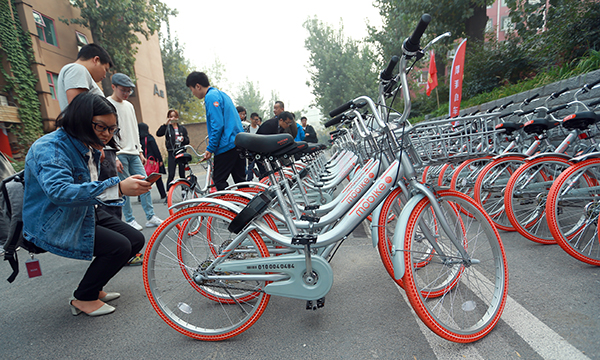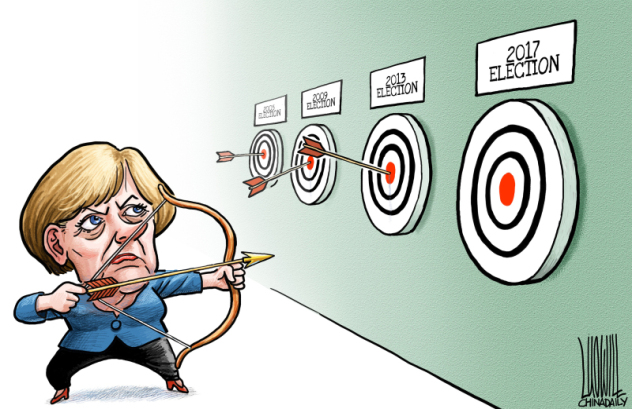Duty to remove illegally parked bikes
 |
|
A reporter uses her cellphone to scan the QR code on a mobike in Beijing on Wednesday. [Photo by Zou Hong/China Daily] |
Over 200 bicycles owned by bike-sharing platforms such as Mobike were impounded last week by the urban management authorities in Chengdu in Southwest China's Sichuan province for "illegally occupying public space". Changjiang Daily commented on Tuesday:
In the face of mounting criticism about their "rigid, obsolete management", the Chengdu authorities said on Sunday that the impounded bikes had been returned to the owners and the city is working on feasible plans to better manage bike-sharing in the city.
In fact, the Chengdu urban patrol officials have an obligation to remove illegally parked bicycles, whether they are owned by residents or bike-sharing companies. Turning a blind eye to the bikes of Mobikes just because they are part of the emerging sharing economy would constitute selective enforcement.
Unlike traditional public bikes that have to be returned to a nearby bike stand when the journey ends, sharing bikes are inspired by an internet approach. They normally employ an intelligent lock with positioning functions to help users locate and borrow bikes nearby. Many can be easily unlocked in seconds by scanning the exclusive QR code on every bike, and parked in any public areas approved by the local authorities.
But that does not mean users can park these bikes anywhere they want. Quite the opposite, the GPS system on the bikes can help the service apps easily trace those responsible for illegally parking and educate them about leaving the bikes in authorized places by imposing on them relevant penalties with fines. Owners of private bikes, on the other hand, are hardly traceable. It is these bicycle users that often get away with "illegally occupying public areas".
That is exactly why the local urban management officials need to be careful in managing Mobikes and other such companies. They should seek to cooperate with these bike-sharing companies to streamline their enforcement by drawing the boundaries for where their bikes can be parked.
On their part, local governments also have to adapt to the sharing economy while making proper plans to supervise it. The recent incident in Chengdu is not a setback for the bike-sharing industry but a needed step to make sure such internet-based innovations are in line with the rule of law.



















